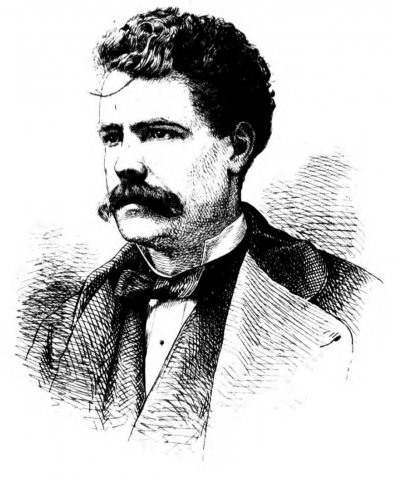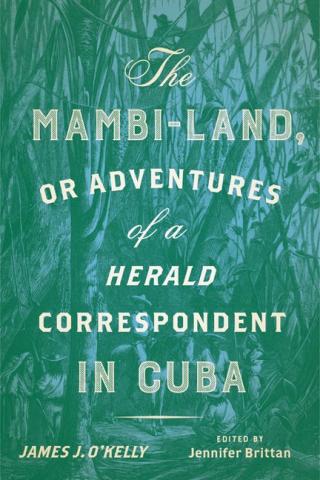

O’Kelly in Cuba
The O’Kelly Archive invites visitors to explore a decisive but overlooked moment in U.S.-Cuba relations. In 1872 Cuba was four years into a war for independence from Spain. In the United States, the most widely-read newspaper—the New York Herald—made Cuba the foreign policy issue of the time, and a question vital for defining the United States in the post-Civil War moment. After recruiting over six thousand men and women for a fictional “HERALD expeditionary army,” the Herald sent James J. O’Kelly to Cuba. He later published The Mambi-Land, or Adventures of a Herald Correspondent in Cuba (1874), the first book-length account of Cuba’s Ten Years’ War. This archive contains approximately 600 items, including articles by and about James J. O’Kelly from the Herald and other domestic and international newspapers, all reporting on Cuba in the Herald for a one-year period (December 1872–December 1873), and documents written by Carlos Manuel de Céspedes and other Cuban leaders.
“Dim, mystic, and clothed in awful shadows, there floats on the edge of the American continent an unknown country.”
About the Project
In late 1872 the New York Herald named James J. O’Kelly its special correspondent to Cuba, sending him to the island to cover what would later be known as the Ten Years’ War (1868-1878). O’Kelly was tasked with crossing Spanish lines, locating the insurgent camps, and interviewing the president of the Cuban republic, Carlos Manuel de Céspedes. The domestic and foreign press dubbed O’Kelly a “second Stanley,” comparing his mission to find Céspedes to New York Herald correspondent Henry Morton Stanley’s 1871 discovery of David Livingston in central Africa. O’Kelly’s many travails (arrest, court-martial, threats of execution) served as the organizing crises for the Herald’s near-daily reporting on Cuba, and O’Kelly became a political lightening rod and household name in the United States and Cuba. New York City’s Bowery Theatre opened its 1873 summer season with Cuba Libre, or O’Kelly’s Mission, a wildly popular show if we can trust the Herald review. For the book that followed, The Mambi-Land, or Adventures of a Herald Correspondent in Cuba (1874), O’Kelly assembled edited versions of the eighteen dispatches he sent to the Herald, some written in the remotest imaginable places in the Cuban interior.
The O’Kelly Archive—searchable by date and keyword—is the first digital archive to focus on James J. O’Kelly and U.S.-Cuba relations during the period of the Ten Years’ War and U.S. Reconstruction. From beginning (the recruitment of a “HERALD expeditionary army” for Cuba) to end (the catastrophic capture of the Cuban blockade runner the Virginius), the archive invites us to take the most anticipated non-event of the time—American intervention in Cuba—as the starting point for a new consideration of U.S. Reconstruction. The Archive brings long-overdue attention to black Reconstruction in particular. The Herald provided extensive coverage of a nation-wide African American campaign for civil rights at home and the abolition of slavery in Cuba and hailed African American activists as embodying the ideals of American republicanism. As Cuban rebel leaders used the Herald to critique U.S. support for continued colonial rule in Cuba, the paper became a platform for conversations about ongoing American investment in slavery.
Acknowledgments
Images from the New York Herald are courtesy of the Chronicling America Collection, Library of Congress.

The Mambi-Land, or Adventures of a Herald Correspondent in Cuba by James J. O'Kelly
A Critical Edition edited by Jennifer Brittan (University of Virginia Press, 2022)
Learn more and order the book at University of Virginia Press
